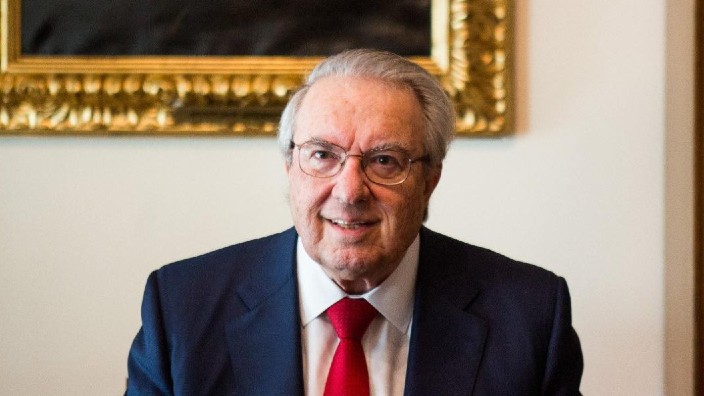The use of the Greek word, ‘pandemic,’ shot up by more than 57,000% last year, according to Oxford English Dictionary lexicographers. This news should be welcomed by renowned Greek Professor Georgios Babiniotis, but it’s not.
Mr Babiniotis is worried the sheer scale of the pandemic and terminology which has emerged as a result, has produced fertile ground for verbal incursions on the Greek language. Something he thought he would never see.
“We have been deluged by new terms and definitions in a very short space of time,” Mr Babiniotis told the Observer.
“Far too many of them are entering spoken and written Greek. On the television you hear phrases such as ‘rapid tests are being conducted via drive-through,’ and almost all the words are English. It’s as if suddenly I’m hearing Creole.”

Almost no tongue has been spoken as continuously as Greek, used without respite in roughly the same geographical region for 40 centuries.
But Mr Babiniotis, who has nine dictionaries to his name and is a former education minister, worries that the resilience that has marked Greek’s long history is at risk of being eroded by an onslaught of English terms that now dominate everyday life.
In the space of a year, he says, Greeks have had to get their heads, and tongues, around words such as “lockdown,” “delivery,” “click away,” “click-and-collect” and “curfew.”
“There has to be some moderation,” Mr Babiniotis told the British media outlet, lamenting that even government announcements are now replete with the terminology.

“We have a very rich language. As the saying goes, ‘the Greeks must have a word for it.’ Lockdown, for example, could be perfectly easily translated.”
This is not the first time that a war of words has erupted over Greek. Arguments over the language, between proponents of change and traditionalists advocating a return to its Attic purity as a means of reviving the golden age, go back to the first century BC.
“For Greeks, language has always been a sensitive issue,” Mr Babiniotis says. “I know what I say troubles some, but it is the duty of a linguist to speak out.”
Source: The Guardian / Helena Smith.

